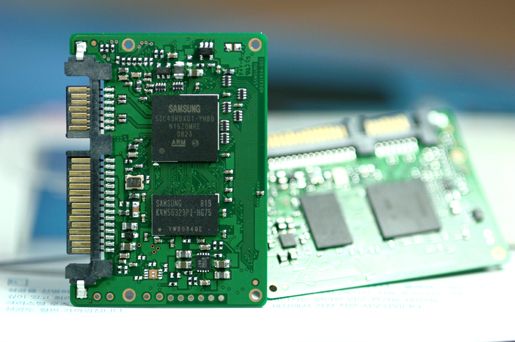SSD 102: The Ins And Outs Of Solid State Storage
The benefits introduced by solid state drives are undeniable. However, there are a few pitfalls to consider when switching to this latest storage technology. This article provides a rundown for beginners and decision makers.
Recommendations For SSD Deployment
Sufficient System Performance
While SSDs help accelerate system response times and performance in a very noticeable way, it turns out that their large number of I/O operations per second can only be leveraged if the host system can keep pace. We did a performance analysis comparing SSD performance on systems with and without CPU power saving mechanisms, showing that power saving has a negative impact on SSD performance. Experience shows that the same applies to I/O-intensive scenarios. An old Pentium 4 just can't handle the massive I/O throughput of a modern SSD, while a quad-core Xeon or Core i5/i7 can. Thus, you should upgrade older servers before upgrading to SSDs.
Secure Erase Considerations
Given that modern controllers take care of write distribution, and file deletion won't always trigger physical deletion of blocks, it's advisable to plan a secure erase strategy for drives that are to be decommissioned in the future. Tools such as Secure Erase 4.0 are helpful.
Firmware Support
Don’t pick an SSD product for which there are no possible firmware upgrades. Updates almost always introduce performance tweaks and may even improve efficiency.
Sufficient RAM
Get Tom's Hardware's best news and in-depth reviews, straight to your inbox.
Most people would think that a very fast SSD is suitable to host the system swap file. This is true, but the much better approach is to provide a sufficient amount of main memory in order to avoid swap file activity. Solutions with 8+ GB of RAM and RAM drives to hold the swap file are the more elegant and higher-performing approaches.
Current page: Recommendations For SSD Deployment
Prev Page Performance Limits And Pitfalls Next Page Outlook
Patrick Schmid was the editor-in-chief for Tom's Hardware from 2005 to 2006. He wrote numerous articles on a wide range of hardware topics, including storage, CPUs, and system builds.
-
Lewis57 A very good article. I love these articles explaining everything. I'm planning on buying two OCZ Vertex 2E 60GB for RAID-0 when I get enough money. Can't wait, should be one hell of an upgrade from a single 5400rpm WD green drive.Reply -
ares1214 Memristors might make SSD's sorter lived than people thought, but who knows. Great article btw.Reply -
JoeSchmuck From what I understand, TRIM is supported under IDE mode using Win7 as well so you do not need AHCI. I have a Samsung’s VBM19C1Q firmware device and running IDE mode.Reply -
Earlier this year we deployed a 5 node failover cluster with iSCSI backend. Each of the VM Host servers utilize a pair of solid state drives for booting and operating, with VM's running off of iSCSI shared cluster volumes. The servers are unbelievably fast and stable - 6 months of 100% uptime on Windows 2008R2. We only use magnetic HDD's now for transporting backups off site.Reply
-
One thing that I'm very curious, if we follow Tomshardware's advice to turn off disk defragmentation, the files on SSD would be defragmented over time.Reply
Upon SSD data loss, can we recover the data files if it's defragmented, especially on a SSD that has never been defragmented as Tomshardware had recommended? -
randomizer Defragmentation of an SSD is not entirely unnecessary. It's important to distinguish between file fragmentation and free space fragmentation. The former is not an issue with SSDs because all parts of an SSD can be read at the same rate (the same is true for writing if the blocks are clean). But fragmentation of free space, whereby free space is largely distributed across partially-filled blocks, can severely reduce the performance of an SSD. Any time a file of <512kB is written to an SSD, it will take up only part of a block. However, the SSD will eventually run out of clean blocks and will need to re-arrange the data by erasing partially-filled blocks and consolidating them to free up more blocks for further writing. Running a free space defragmentation on the drive will aggressively consolidate the data on-demand so that you don't have the problem occurring when you didn't plan for it.Reply
Most SSDs will perform this process themselves when idle for extended periods, but it happens at a slow rate. This is what most manufacturers refer to when they talk about Garbage Collection. -
Alvin Smith Please send me the four fastest 256GB SSDs on the market, so that I might perform my own comparison ... I'll just sit by the door and wait for UPS to arrive.Reply
Thanks, in advance !!
= Alvin =
-
gordonaus I put an SSD in my new computer and it was good but after i got the firmware update and changed to AHCI it was AMAZING (OZC Vertex 2 60gb). I would say tho that 60 gb is not enough, i installed windows photoshop and a few other design programs and i only have 20GB leftReply
